Mercedes EQS vs Tesla Model S - Differences and prices compared
Compare performance (544 HP vs 1020 HP), boot space and price (93900 £ vs 94300 £ ) at a glance. Find out which car is the better choice for you – Mercedes EQS or Tesla Model S?
Costs and Efficiency:
Looking at overall running costs, both models reveal some interesting differences in everyday economy.
Mercedes EQS has a barely noticeable advantage in terms of price – it starts at 93900 £ , while the Tesla Model S costs 94300 £ . That’s a price difference of around 377 £.
In terms of energy consumption, the advantage goes to the Mercedes EQS: with 16.50 kWh per 100 km, it’s hardly perceptible more efficient than the Tesla Model S with 16.80 kWh. That’s a difference of about 0.30 kWh.
As for electric range, the Mercedes EQS performs slight better – achieving up to 816 km, about 72 km more than the Tesla Model S.
Engine and Performance:
Under the bonnet, it becomes clear which model is tuned for sportiness and which one takes the lead when you hit the accelerator.
When it comes to engine power, the Tesla Model S has a clearly edge – offering 1020 HP compared to 544 HP. That’s roughly 476 HP more horsepower.
In acceleration from 0 to 100 km/h, the Tesla Model S is significantly quicker – completing the sprint in 2.10 s, while the Mercedes EQS takes 4.40 s. That’s about 2.30 s faster.
In terms of top speed, the Tesla Model S performs evident better – reaching 322 km/h, while the Mercedes EQS tops out at 210 km/h. The difference is around 112 km/h.
Space and Everyday Use:
Beyond pure performance, interior space and usability matter most in daily life. This is where you see which car is more practical and versatile.
Both vehicles offer seating for 5 people.
In curb weight, Tesla Model S is noticeable lighter – 2092 kg compared to 2545 kg. The difference is around 453 kg.
In terms of boot space, the Tesla Model S offers evident more room – 799 L compared to 610 L. That’s a difference of about 189 L.
In maximum load capacity, the Tesla Model S performs hardly perceptible better – up to 1828 L, which is about 58 L more than the Mercedes EQS.
When it comes to payload, Mercedes EQS noticeable takes the win – 565 kg compared to 442 kg. That’s a difference of about 123 kg.
Who wins the race in the data check?
The Tesla Model S sits well ahead of its rival in the objective data comparison.
This result only shows which model scores more points on paper – not which of the two cars feels right for you.
Costs and Consumption
View detailed analysis
Engine and Performance
View detailed analysis
Dimensions and Body
View detailed analysis
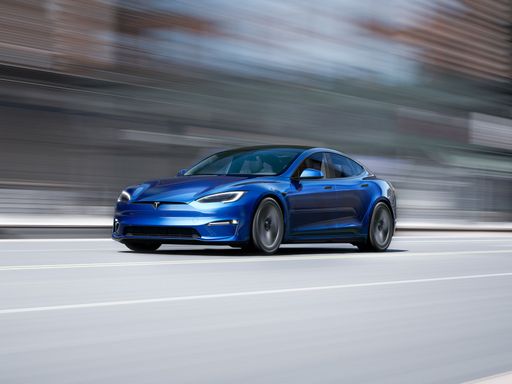
Tesla Model S
Mercedes EQS
The Mercedes EQS is a silent, spaceship-like flagship that turns electric luxury into zen on wheels, wrapped in a swooping design that insists on being admired. Inside it’s all glassy screens and soft-touch surfaces that make long trips feel like first class, and the driving experience is composed and effortless — like a courteous butler with an electric heart.
details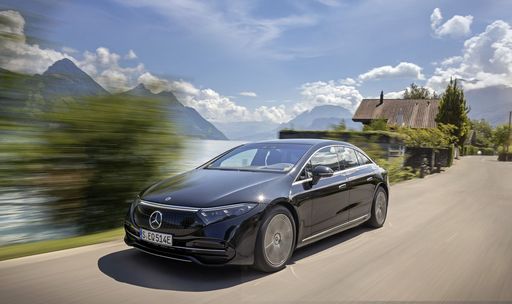
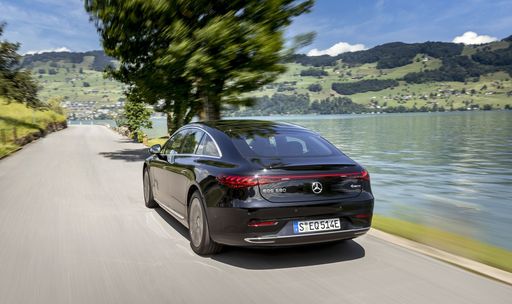
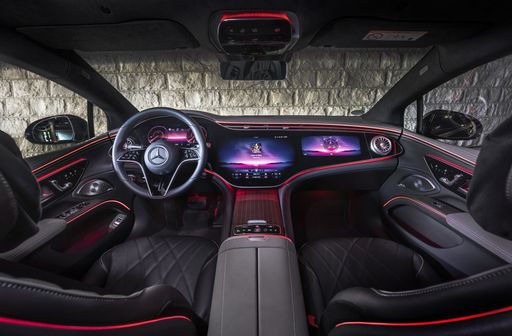
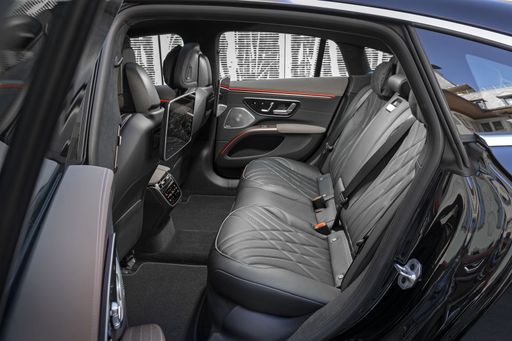
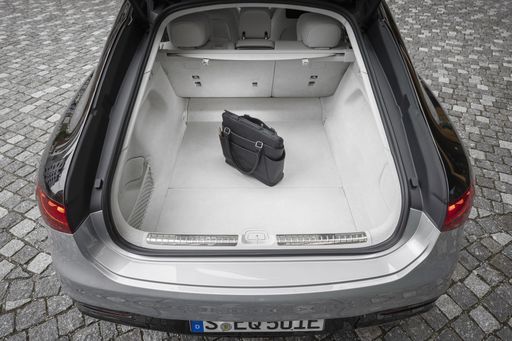
Tesla Model S
The Tesla Model S glides like a luxury sedan from the future, delivering instant shove and serene highway composure that make it feel equally at home on a rush-hour commute or a long-distance cruise. Inside, its minimalist cabin and gadget-forward interface turn every drive into a tech demo, making it as much a statement piece as a practical choice — and one that still manages to feel a little bit magical.
details
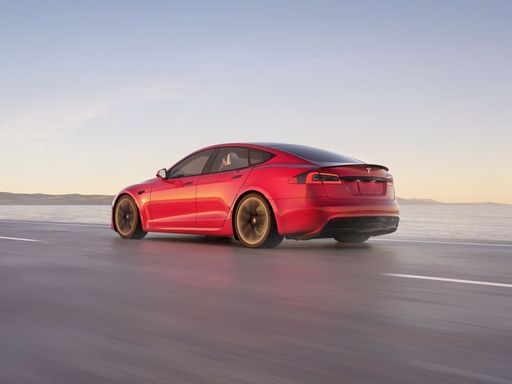
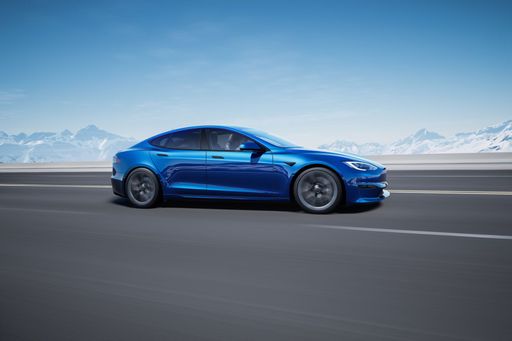
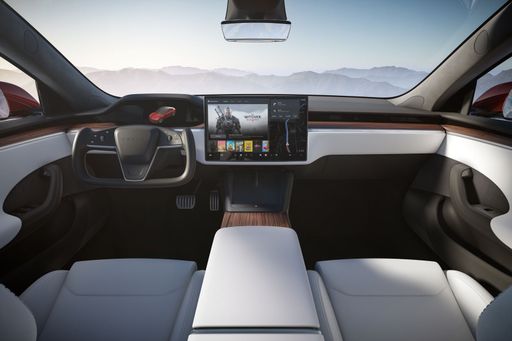
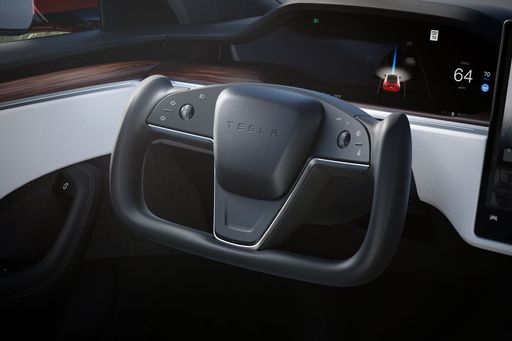
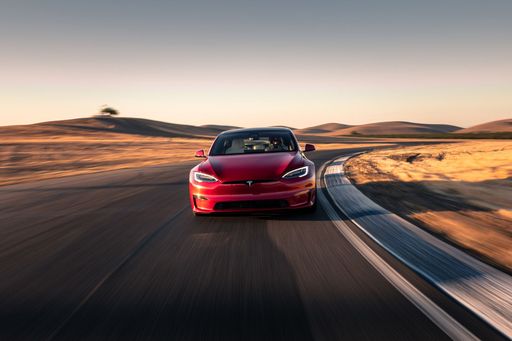
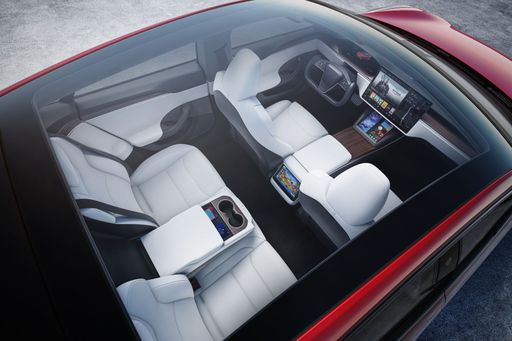
Costs and Consumption |
|
|---|---|
|
Price
93900 - 123500 £
|
Price
94300 - 102800 £
|
|
Consumption L/100km
-
|
Consumption L/100km
-
|
|
Consumption kWh/100km
16.5 - 17.2 kWh
|
Consumption kWh/100km
16.8 - 18 kWh
|
|
Electric Range
790 - 816 km
|
Electric Range
611 - 744 km
|
|
Battery Capacity
118 kWh
|
Battery Capacity
-
|
|
co2
0 g/km
|
co2
0 g/km
|
|
Fuel tank capacity
-
|
Fuel tank capacity
-
|
Dimensions and Body |
|
|---|---|
|
Body Type
Hatchback
|
Body Type
Hatchback
|
|
Seats
5
|
Seats
5
|
|
Doors
5
|
Doors
5
|
|
Curb weight
2545 - 2655 kg
|
Curb weight
2092 - 2197 kg
|
|
Trunk capacity
610 L
|
Trunk capacity
799 L
|
|
Length
5223 mm
|
Length
5021 mm
|
|
Width
1926 mm
|
Width
1987 mm
|
|
Height
1512 mm
|
Height
1431 mm
|
|
Max trunk capacity
1770 L
|
Max trunk capacity
1828 L
|
|
Payload
550 - 565 kg
|
Payload
432 - 442 kg
|
Engine and Performance |
|
|---|---|
|
Engine Type
Electric
|
Engine Type
Electric
|
|
Transmission
Automatic
|
Transmission
Automatic
|
|
Transmission Detail
Reduction Gearbox
|
Transmission Detail
Reduction Gearbox
|
|
Drive Type
All-Wheel Drive, Rear-Wheel Drive
|
Drive Type
All-Wheel Drive
|
|
Power HP
360 - 544 HP
|
Power HP
670 - 1020 HP
|
|
Acceleration 0-100km/h
4.4 - 6.2 s
|
Acceleration 0-100km/h
2.1 - 3.2 s
|
|
Max Speed
210 km/h
|
Max Speed
240 - 322 km/h
|
|
Torque
568 - 858 Nm
|
Torque
-
|
|
Number of Cylinders
-
|
Number of Cylinders
-
|
|
Power kW
265 - 400 kW
|
Power kW
493 - 750 kW
|
|
Engine capacity
-
|
Engine capacity
-
|
General |
|
|---|---|
|
Model Year
2024
|
Model Year
2025
|
|
CO2 Efficiency Class
A
|
CO2 Efficiency Class
A
|
|
Brand
Mercedes-Benz
|
Brand
Tesla
|
What drivetrain options does the Mercedes EQS have?
Available configurations include All-Wheel Drive or Rear-Wheel Drive.
